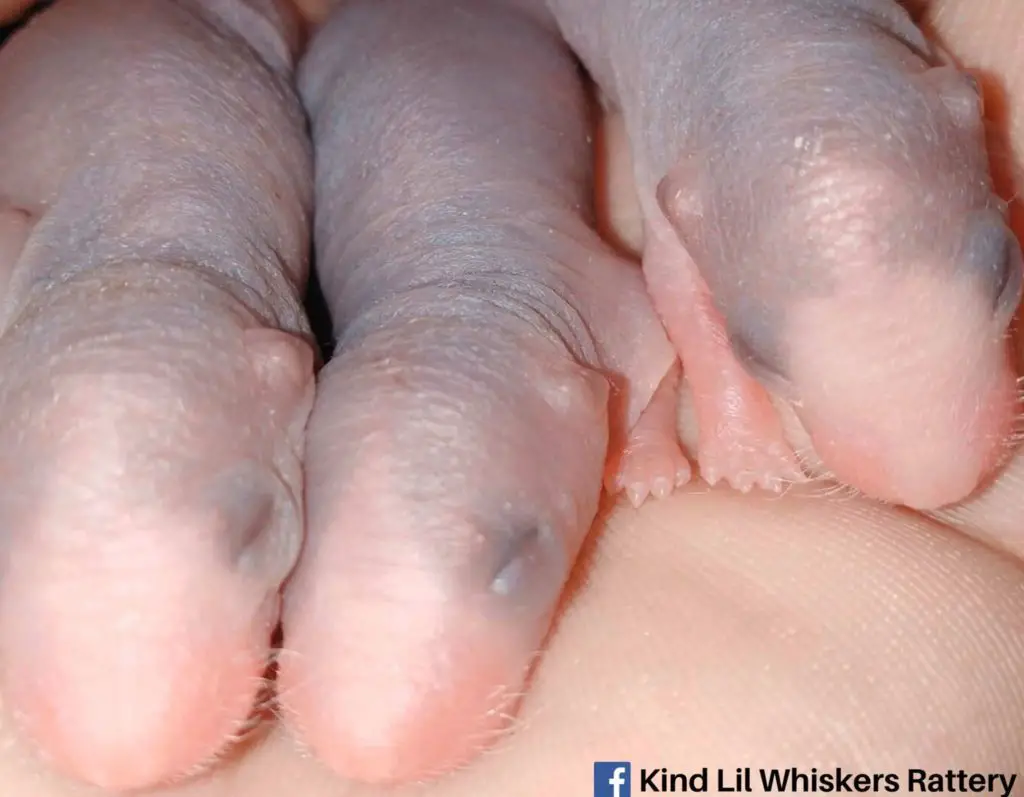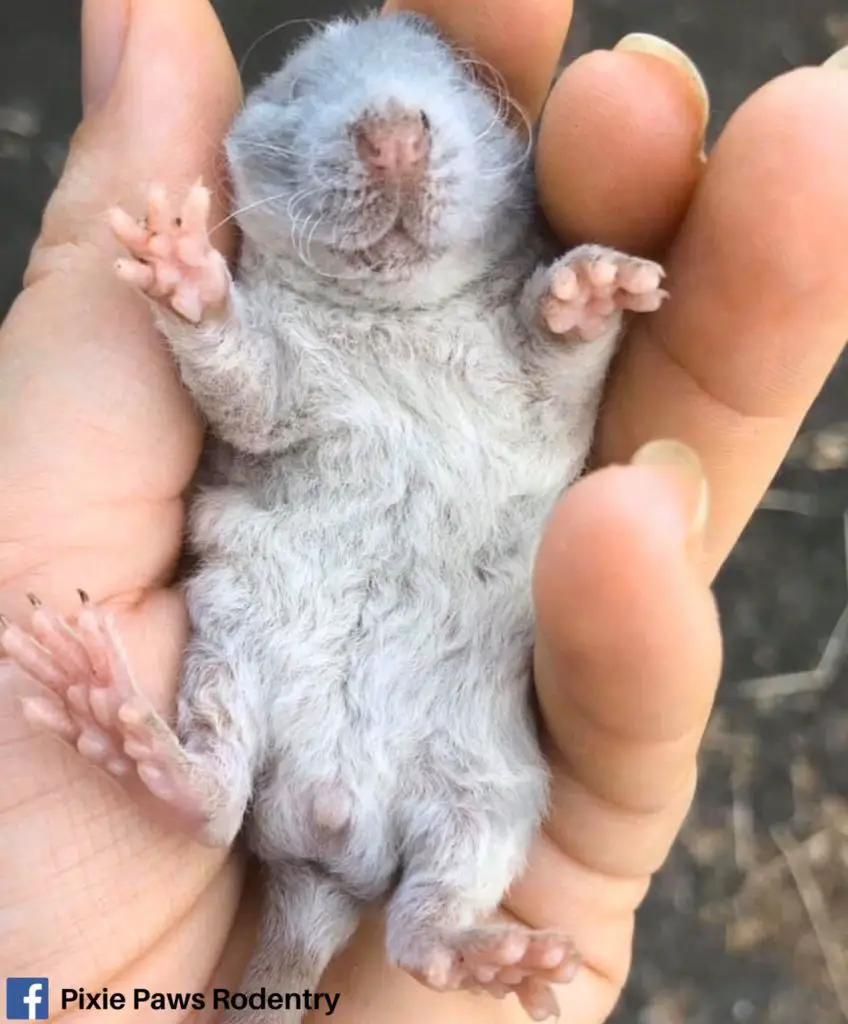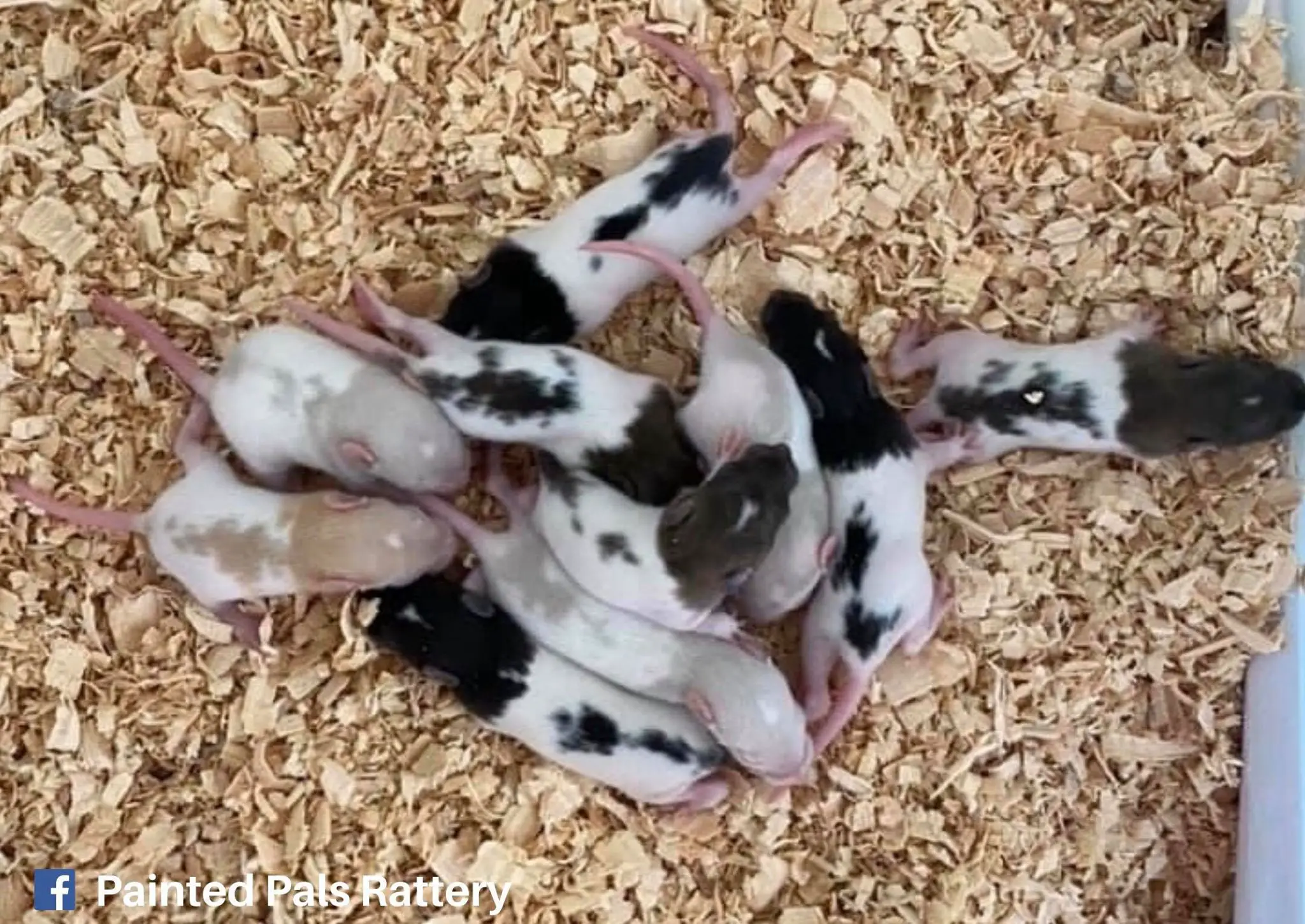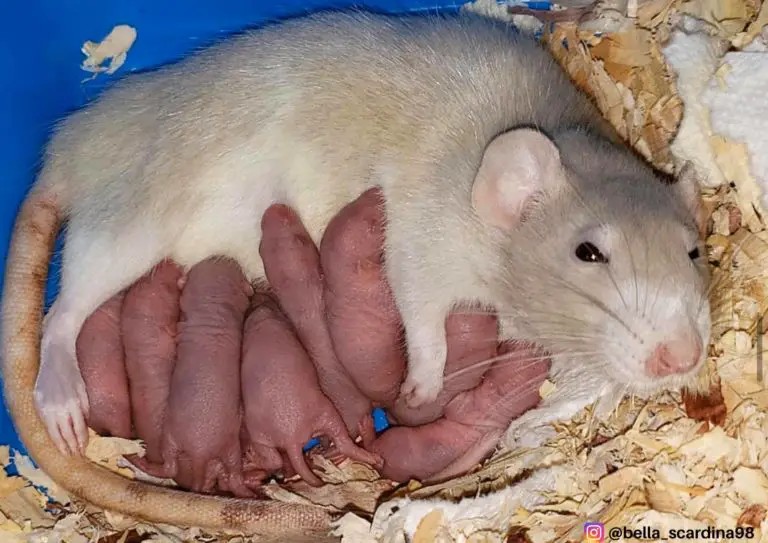How to care for baby pet rats
Whether you have just identified that your pet rat is pregnant, your rat has had a surprise birth or you are now the foster carer for a new litter of precious baby rats here is some information and tips to keep the process as smooth as possible.
The first thing you may be wondering is how do I take care of all of these baby rats? With pregnant female rats you can expect a litter somewhere in the ball park of between 8-15 baby rats or in rare cases even more! Baby rats are also known as kittens or pups.
First weeks of life

After they are born, the pups are tiny, about one-and-a-half-inch long. They are also blind, deaf, and hairless. The baby rats have to stay with their mother who takes care of them and nurses them for 4-5 weeks. Taking care of baby rats is more than just providing their mother with materials to make the nest. The nest has to be warm and as smooth as possible for the pups to stay warm and cozy. The young rats thrive once you understand what to provide them with and how to provide these needs.
Feeding Baby Rats
The first thing you have to learn is how to feed the baby rats. The rats have to be nursed by their mother for the first two weeks. At this time, the baby rats get all their nutrition from their mother’s milk. During this time, taking care of the mother means taking care of the baby rats. Feed the mother with the right store bought pellet food specially formulated for rats. This ensues the rat gets the nutrients required to survive and feed the baby rats as well. After two weeks, the rats don’t have to fully depend on their mother. With young pet rats, having a wide range of options to nibble on is highly beneficial. To supplement your rat’s diet, you can feed small amounts of nuts, fresh vegetables, crackers, and whole grain cereals.
To be on the safe side, make sure you feed the pet rats twice a day. When the rats start feeding, some might become picky eaters. They can eat meat but don’t make it a staple in their diet. Before you introduce the rats to any food, make sure the food is safe for rats to eat.
Socialising Baby Rats
Rats are lively and social animals and they can get bored when raised alone. To avoid this, get your pet rat a companion. However, make sure the rat is of the same sex and preferably age. Before the age of 5 weeks, female and male rats have to be separated. The baby rats need to grow up around other rats to be well socialized and happy, however, you have to be cautious of in breeding.
Sexing Baby Rats
If you don’t know your rat’s sex, hold it gently such that you can see the underside. The male rats have a well noticeable scrotum when they are 3 weeks old which helps differentiate them from their female siblings. Sexing rats when they’re younger than 2 weeks old can be a little tricky. The best way to try and tell is by the distance between the genitals and the anus. The male pups will have a longer spacing than the female pups. The next opportunity is when they start getting fur. The female rats will have visible patches where their nipples are. If you don’t separate the rats after 5 weeks, they won’t shy away from incest and in breeding.

Housing Baby Rats
Housing is another issue when it comes to caring for baby rats. It’s important to have a proper cage. Look for a wire made cage with half an inch openings between the wire bars. A single rat requires 2.5 cubic feet of space to live comfortably, play and socialize. Take caution not to buy a cage that is too bug or too small. Most of the cages marketed exclusively for rats can be too small and of poor quality. A cage with ample height allows the rats to have a lot of vertical space to climb and play making it more suitable.
Handling Baby Rats
It’s important to check on the pups when they’re newly born to make sure everything has turned out well but when it comes to handling the pups, it’s probably best to wait a day before doing so. When the mum leaves the nest and it’s safe to do so, you should check if all the babies are alive and if they have milk bands in their belly. Since baby rats have translucent skin, spotting the milk band is easy. If everything is going well, you should be able to see small milky coloured spots in their stomach. If you can’t see a milk band then something could be wrong. Either they aren’t getting fed by the mother or she can’t produce any milk. If you have this happen, it’s best to take them to a vet immediately. You should also check the mother to check if she has any bleeding or infected discharge. If she does, she needs to go to a vet immediately as well.
When handling new babies, it’s best to only do so for a few seconds. That way they’re not kept out of the warm nest for too long. Once the pups start getting fur, you can handle them more often and for longer. Once it reaches about 2-3 weeks, the pups will start opening their eyes and will become more playful and curious.
Baby Rats Health
Your rat’s health is a priority. The rat should be taken to the veterinary for regular checkups. Take the young rats for checkups early, this way, the rats will adapt to vet visits and it will also help to identify any potential health problems as early as possible. It’s advisable to have the rat vet checked after every 6 months and at any other time you notice any worrying changes with the rats. Watch out for any signs of illness on the rats as well as they are susceptible to diseases.
It’s also important to maintain a clean and healthy environment for the rats by cleaning their cage regularly. The cage should be cleaned daily and avoid any toxic cleaners. Take time to bathe the rats as well. As much as the rats groom themselves, a bath may be helpful to avoid odours. However, don’t overdo it. A bath once a month is enough otherwise you deplete them of natural oils found on the skin. Check the rats for injuries, ticks or fleas as you bathe them and follow up on any issues with the vet. For our bathing guide click here.
Maybe you decided to keep all the babies. Make sure the males are separated from the females and that the cages are big enough to house the number of rats you have. It’s fun watching baby rats grow. If you don’t have any idea how to care for baby rats, don’t panic, the mother handles the better part of the deal. If anything concerns you, go can always go and see the vet.










